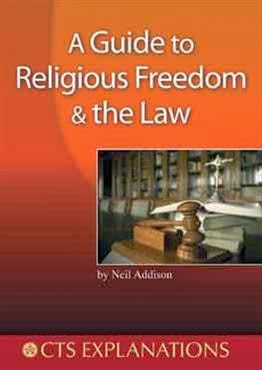The case of Drew v Walsall Healthcare NHS Trust [2013] UKEAT 0378_12_2009 raises again the vexed question of how far an individual can bring their personal religious beliefs into the workplace.
Dr Drew was employed by the NHS as a Paediatric consultant. He worked in what was described as a "multicultural and multi-faith department". Problems within the department arose because Dr Drew apparently habitually used Christian references in his professional communications with others. News reports on the case have made reference to the fact that on one occasion he distributed an email containing a prayer by St Ignatius Loyola which he personally had found motivational in the past
An internal investigation made a recommendation, among others, that he should keep his personal views and religious beliefs to himself and should not impose them on others. The Appellant did not accept the recommendation and took out a grievance which led to an independent review of the situation. This led to a report which amongst other things recommended that Dr Drew should refrain from any religious references in his professional communications.
All the relevant staff accepted the panel's recommendations, except Dr Drew and his refusal ultimately led to disciplinary proceedings and eventual dismissal. Dr Drew claimed that he had been discriminated against on religious grounds, had been victimized and had been unfairly dismissed. The Employment Tribunal rejected his claims as did the EAT
On appeal multiple grounds were argued but all failed. The EAT stated that the ET had correctly directed themselves to follow the guidance given by the EAT in Islington v. Ladele [2008] UKEAT 0453_08_1912 They had identified correctly a hypothetical comparator (having rejected the Appellant's actual comparator, a conclusion which was not attacked on appeal) as someone whose relevant circumstances were the same as those of the Appellant save for his protected characteristic, described by the Appellant as that of being an "orthodox Christian", and who acted as the Appellant had done but used terms relating to his own religious belief system or non-religious or atheist belief system and were entitled to conclude that such a comparator would have been treated in the same way.
Much of the judgment dealt with the vexed question of the appropriate "comparator" and the EAT noted the particular difficulty of finding the appropriate comparator in Religious Discrimination cases
57 We have some sympathy for anyone who has to identify an appropriate hypothetical comparator in the context of this particular form of discrimination and are not critical of Mr McIlroy's attempts to nail down a convincing rationale for his criticism of the Tribunal's conclusions on this issue. The exercise of identifying an appropriate hypothetical comparator is not straightforward, as the EAT said in Ladele at paragraph 35; the Tribunal could have avoided the exercise by going directly to determination of the reason why Dr Drew was treated as he was – see Ladele, paragraphs 37 and 38 – but they were clearly entitled to seek to identify the appropriate comparator and indeed received extensive submissions on the topic. Neither Mr McIlroy nor Ms Misra criticised the Tribunal for seeking to resolve the arguments between the parties as to the correct hypothetical comparator or for deciding that "reason why" issue by reference to a hypothetical comparator, as they did.
58 In our judgment, it being clear that Dr Drew's case was that he was discriminated against because of his orthodox Christian beliefs the Tribunal did not err in law in determining that the hypothetical comparator, who was in the same or not materially different circumstances, was a person in Dr Drew's position – i.e. a consultant paediatrician – who in the course of his work made references to which others objected based on his own religious or non-religious belief system. The second sentence of paragraph 100(2) of the Tribunal's judgment, in rather fuller terms, is, in our judgment, correct or at least sets out a solution which was open to the Tribunal. There would have been no basis for restricting the comparator in the context of this case, in which Dr Drew claimed discrimination on the grounds of his orthodox Christian beliefs, for excluding a comparison of a consultant paediatrician of a different religion. Dr Drew's case was not that Dr Rashid or the Trust were discriminating against all religions as opposed to a non-religious belief system; the Tribunal were not in error in failing to restrict the comparator to one who was an atheist.
Though the case does demonstrate again the difficulties in establishing Religious Discrimination claims the case is extremely fact specific and probably provides little assistance in other similar situations. The point that seems to come over generally in the judgment is that personal relationships had broken down between Dr Drew and his work colleagues for reasons which had more to do with personality clashes than with Religion
Subscribe to:
Post Comments (Atom)



No comments:
Post a Comment